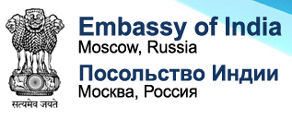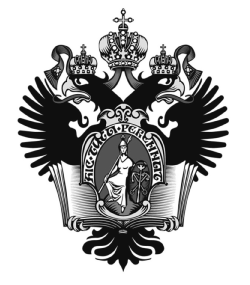CENTERS OF INDIA STUDIES IN RUSSIA
St.-Petersburg
St.-Petersburg State University
Faculty of Asian and African Studies
Department of Indian (in 1944-1949 – Indo-Tibetan) philology was founded by prof. K.A. Kossovich in 1858. The primary field of researchers’ interest then was restricted to ancient Indian studies. Professors I.P. Minaev, S.F. Oldenburg, F.I. Shcherbatskoy, members of the famous St. Petersburg school of Sanskritology, studied and worked here. In the 1920-ies a large-scale study of the modern Indian languages (Hindustani, Bengali, Marathi) and literatures began under the guidance of academician A.P. Barannikov. In the postwar years, the circle of the studied languages was expanded by the languages of South India - Tamil and Telugu. Now the list of languages taught at the Department includes Sanskrit, Pali, Hindi and its medieval dialects, Bengali, Telugu, Marathi, Urdu and Nepali.
In addition to teaching the members of the department are engaged in active research and translation work.
Head - Associate Professor S.O. Tsvetkova.
http://orient.spbu.ru/department/subdepartments/department-of-indian-philology/
Far East History Department
A serious study of the history and ethnography of India began in Leningrad back in 1920-30-ies. In 1949, the Department of History of the Far East was established in Leningrad State University, where, along with Chinese and Japanese history, the history of India began to be studied and taught. In 1950-60-ies the main focus of the scientific work of the historians of India was placed on the study of modern and contemporary history of the country. First indologists of the department, E.Ya. Lyusternik and Yu.V. Petchenko were engaged in research of national liberation movements in India, the development of Russian-Indian relations, as well as the country's economy. Currently, two indologists I.Yu. Kotin and E.V. Smirnova, are working at the Department, providing courses on Indian history, geography, ethnography, as well as a number of special courses on topical issues of Indology.
http://orient.spbu.ru/department/subdepartments/department-of-history-of-the-far-east-countries/
Institute of Philosophy
Department of Philosophy and Culture of the Orient
Educational program “Cultural Studies: Indian Culture” at the Department of Philosophy and Culture of the Orient has been developed to provide education in the sphere of Indology to those who are more interested in philosophy and culture than in languages or history.
Coordinator of the program - associate professor S.V. Pakhomov.
http://philosophy.spbu.ru/3116/6417
http://www.indcultur.narod.ru/
Faculty of International Relations
Center of Indian Studies, the Department of Theory and History of international relations (associate professor. K.A. Likhachev).
http://sir.spbu.ru/profs/?id=219
Institute of Oriental Manuscripts, RAS
The Institute was founded on the basis of Saint-Petersburg department of the Institute of Oriental Studies RAS in 2007. It is one of the oldest centers of oriental studies in Russia, first established as “Asiatic Museum” in 1818. In 1950 most departments of the Institute were transferred to Moscow; however, part of the library and the collection of manuscripts remained in Leningrad, and a branch of the IOS was opened here. In 1957 the ‘group of indologists’ was formed, which was later transformed into Indian Cabinet. This department was headed by such outstanding scientists as V.M. Beskrovniy, G.A. Zograf, Ya.V. Vassilkov. During the 60-year long history this sector has gone through a number of о structural changes (merger with South-East Asian group, separation of the Buddhist studies group headed by V.I. Rudoy). At present Indologists work at the department of Central and South Asia, and the department of manuscripts and documents.
Museum of Anthropology and Ethnography, RAS
Problems of Indian society and culture have become one of the focal areas of research for the Institute of Ethnography, established in 1933 on the basis of the Museum of Ethnography, popularly known as ‘Kunstkamera’. Research fellows of the Institute forge relationships with scientific centers in India, participate in exhibitions, and take part in ethnological expeditions. Outstanding researchers like D.A. Suleykin, V.E. Krasnodembskiy and M.K. Kudryavtsev can be called ‘fathers’ of Indian Ethnography in Russia. The famous group of enthusiasts headed by Yu.V. Knorozov contributed much to deciphering of inscriptions of Harappan period and study of the Proto-Indian Civilization. At present most Indologists work at the department of South and South-Western Asia.
Oriental Center
A private educational center, providing Hindi classes for adults and organizing annual regional competition for schoolchildren learning Hindi.
http://www.orientalcenter.spb.ru/xindi-urdu-sanskrit.html
Hindi school №653 named in honor of R. Tagore
Moscow
Moscow State University
There are two departments within the Institute of Asian and African studies, where Indian languages, literatures, history, culture, politics and economy are studied. Both departments were established in 1956, when the Institute of oriental languages was founded.
Specialists in Indian languages (Sanskrit, Hindi, Urdu, Tamil, Bengali, Punjabi) and literatures work at the department of Indian Philology, headed by professor B.A. Zakharyin.
History of India and contiguous countries is studied at the department of History of South Asia, headed by professor A.A. Vigasin.
Some indological disciplines (Sanskrit, the Vedic language and literature) are also included in the curriculum of the department of History and Theory of World Culture (Faculty of Philosophy).
http://philos.msu.ru/kaf/itmk/
Sanskrit is also studied by those students of the Philological Faculty, who are interested in comparative linguistics and Indo-European studies.
http://www.philol.msu.ru/~otipl/new/main/index.php
MGIMO University
Indian languages have been studied in MGIMO since 1954. At present Indologists work at the department of Indo-Iranian and African languages of the faculty of International Relations. Graduates of this University are mostly oriented to work in the field of diplomacy and business communication. For this reason only modern languages are studied here – Hindi, Urdu, Bengali.
http://mgimo.ru/study/faculty/mo/kindo/
RSUH
There are several departments within RSUH where Indian languages, culture and history are studied. These are:
Department of oriental languages within the Institute of Linguistics (I.A. Gazieva, S.V. Kullanda)
http://il.rsuh.ru/section.html?id=6059
Department of history and philology of South and Central Asia headed by prof. M.A. Rusanov
http://ivka.rsuh.ru/article.html?id=79672
Institute for Advanced Studies in Humanities (director –S.D. Serebryaniy) http://ivgi.org/HomePage
International Center for South Indian Studies (director – A.A. Stolyarov) http://www.rsuh.ru/csas/
In 2015 within the annual program “Days of South Asia” two cabinets – “BRICS” and “Mahatma Gandhi and Jawaharlal Nehru” were opened in RSUH.
RUDN University
Philological faculty, Department of Foreign Languages
http://www.rudn.ru/?pagec=2688
Institute of practical oriental studies
A private educational organization established 1993 with the aim of providing education in the sphere of oriental studies to waster groups of students. Indian languages and other disciplines of the cycle are read by lecturers from MSU.
Institute of Oriental Studies, RAS
Institute of Oriental Studies, one of the oldest centers of Indian studies in Russia, was transferred from Leningrad to Moscow in 1950 г. At present it includes the sector of Indian studies, headed by T.L. Shaumyan. Renown indologists, like R.B. Rybakov, I.P. Glushkova, E. Yu. Vanina work at the subdivisions of the sector – sector of history and culture, sector of contemporary problems, interdisciplinary project group ‘Under the Sky of South Asia”.
http://www.ivran.ru/indianc-center
Institute of Linguistics, RAS
I.M. Rumyantseva
http://iling-ran.ru/main/scholars/rumyantseva
I.A. Svyatopolk-Chetvertinskiy
http://iling-ran.ru/main/departments/comparative
Institute of Philosophy, RAS
Sector of Oriental Philosophy (headed by V.G. Lysenko)
http://iph.ras.ru/orient_phil.htm
Jawaharlal Nehru Cultural Center, Indian Embassy
http://indianembassy.ru/index.php/ru/jncc/2014-03-04-13-38-05
Владивосток
Indological department was opened in 1993 at the faculty of Oriental studies of the Far Eastern State University. The priority was the preparation of specialists for the successful establishment and maintenance of trade, economic and cultural relations between India and the Far East. The first teachers were graduates of LSU / St. Petersburg State University – A.V. Serov and I.V. Kozyreva, as well as an Indian graduate of the department of Russian language and literature. Arun Bandopadhyay. In the course of the 20 years of its existence, the department has prepared specialists now forming its staff, who developed and implemented programs for language disciplines (Hindi, Sanskrit, Bengali), literature, history and culture of India. Textbooks and monographs have been published; all educational materials are subject to regular updating. On the basis of FEFU, Indian cultural and educational center headed by Sushil Vatsa was opened.
http://ifl.wl.dvfu.ru/struktura/kafedry/kafedra-tixookeanskoj-azii
http://ifl.wl.dvfu.ru/struktura/mezhdunarodnye-centry/india
Kazan
Learning and teaching oriental languages in Kazan started back in the 18th century, however, in the absence of direct contact with the Indians for a long time Indology was not considered a priority and was not development. However, the Department of Sanskrit was opened within the Department of Oriental Literature in 1842. The teacher was a former student of Robert Lenz P. Ya. Petrov, whose translation of a fragment from "Adhyatmaramayana" attracted the attention of the Imperial Academy of Sciences to studies of the ancient Indian literature. P. Ya. Petrov developed the educational programs for the disciplines like Sanskrit, Sanskrit literature, "Indian Antiquities" and the history of the kingdom of Kashmir. For research and teaching work P.Ya. Petrov prepared "an anthology of Sanskrit" - a collection of excerpts from the "Mahabharata" and Kalidasa's works.
After Petrov’s leave Sanskrit learning tradition in Kazan was continued by F.F. Bollenzen, but in 1855 centers of oriental studies were moved from Kazan to St. Petersburg, and the regular teaching of Indian languages at Kazan University stopped for a century and a half.
It was only in March 2012 that the Center of Indian studies was opened at the Institute of International Relations, History and Oriental Studie with the purpose of providing information about India in Russia. In 2015 the first group of students was enrolled to study Indian languages, Literature and culture.
http://kpfu.ru/news/novosti-i-obyavleniya/sozdaetsya-centr-izucheniya-indii-v-kfu-4196.html
Ulan-Ude
Institute of Mongol, Buddhist and Tibetan studies of the Syberian Department of RAS.
Researcher Amogolonova D.D. http://imbt.ru/?page_id=2905



